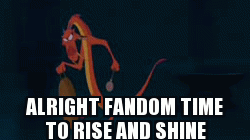It was also actively and specifically written as a pushback against Mary Whitehouse and the conservative campaigners who were doing exactly the same as today's modern "purity" police. It was tongue-in-cheek and naughty and hitting all of the buttons of the screeching conservative folk.
This is a review for the original stage production from the CD of the original cast recording.
If the Daily Mail reviewer in the 70s can make the link between vampire biting as a sex surrogate but modern people can't really does speak to that disconnect of media literacy.
And in addition to this, when asked where his inspiration for the show came from in 2023, Richard O'Brien explained:
“It actually comes from me,” says O’Brien, who wrote the book and score to the original Rocky Horror Show stage play that inspired the film (which turns 50 this month), and played the put-upon butler Riff Raff in both. “I used to beat myself up about the hand I was dealt. I don’t know how it works. I have no idea. I’ve read many tomes about the subject of the transvestic nature. It’s the cards you’re dealt. In a binary world it’s a bit of curse, really. Especially in those days when homosexuality was a crime. It’s just one of those things that western society wasn’t very keen on.” (x)
It was written in the 70s by a queer person flipping the bird at the establishment. The language used was the language of the queer community at the time. It was a rebellious, joyous, chaotic queer retelling of classic sci-fi and fantasy kitsch. It was tongue-in-cheek and satirical and smart and shrewd.
And most importantly, it gave queer people in the 70s and 80s something mainstream that they could embrace safely. The live screenings, the midnight shows, the watchalongs all over the country. People could go there and feel safe because this was a film made *for* them and *by* them.
Maybe it doesn't live up to modern expectations for queer media, but as Frank says to Janet, "I didn't make it for you". It was a piece of art that was made very much for the time and political environment it was born in. Of course it won't fit modern standards, because times have changed.
Critique it if you must, but critique it within the context of its own time and place when it was written and why it was written. It was queer art and remains queer art and just because it doesn't fit modern sensibilities doesn't make it something to be torn down.































